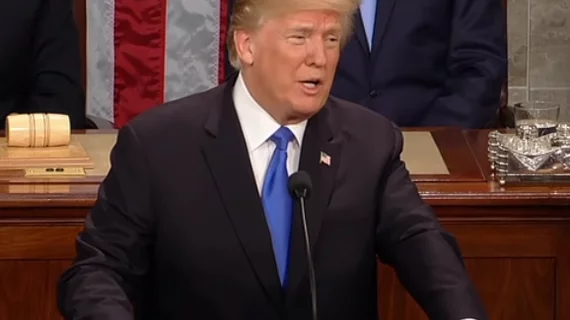MITA backs lawmakers’ initiative to eliminate medical products from proposed China tariffs
Less than a week after President Donald Trump confirmed plans to proceed with tariffs on billions of dollars in Chinese imports, the Medical Imaging & Technology Alliance (MITA) has said it’s backing a bipartisan letter urging U.S. Trade Representative Robert Lighthizer to exempt nearly $3 billion worth of medical device products from Section 301 tariffs.
The letter, penned by Congressmen Erik Paulsen and Scott Peters, was signed by 40 members of Congress and requested that all medical technology products be removed from the proposed tariff list. Those tariffs would likely result in a “double tax on manufacturers,” MITA said.
“This bipartisan initiative to exempt medical devices from proposed tariffs...demonstrates Congressional recognition of the enormous economic and health value of medical devices, including imaging technologies,” Patrick Hope, executive director of MITA, said in a release.
The lawmakers said in their letter to the Office of the United States Trade Representative (USTR) that the U.S. medical technology industry is “an American success story,” and that going through with the planned tariffs would not only hurt domestic manufacturing—it would also hurt the country’s ability to complete globally and could limit patients’ access to potentially life-saving technologies.
“With its growing economy and middle class, rapidly aging population and increased demand for medical technology, China will continue to be an attractive market for U.S. manufacturers,” Paulsen, Peters and their co-signers wrote. “With that in mind, we are concerned that inclusion of medical devices on any final Section 301 tariff list could lead to retaliation that would jeopardize these opportunities.”
Moving forward with the plans proposed by Trump “ignores the nearly balanced trade relationship” the U.S. and China have managed to achieve in medical tech products, the authors said. America’s trade deficit with China in these products is “negligible and shrinking yearly,” they wrote, and the U.S. actually has a surplus with China for the medical device products included in the Section 301 list.
The letter did laud the USTR for allowing a public comment period before any final tariffs are imposed.
“We thank Congressmen Paulsen and Peters for leading this effort and for advocating on behalf of their constituents and our employees and the patients they serve,” Hope said.

